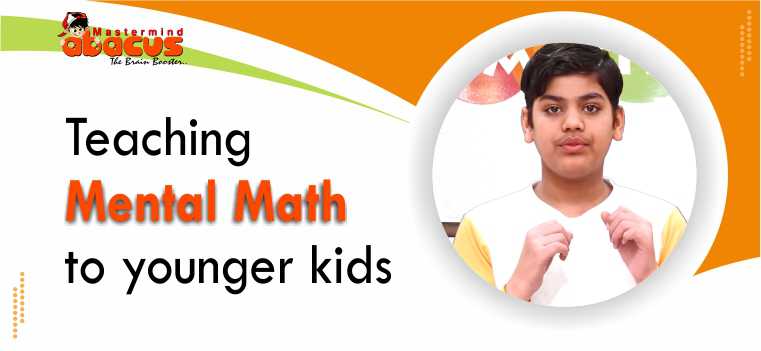
Teaching Mental Math To Younger Kids
It is a common perception that teaching mental math to younger kids takes work. But on the contrary, the fact is that these early learners have great abilities like the ability to visualize and the capability to imagine. These are two important attributes that come in handy in learning to do mental math.
Moreover, when a kid performs mental math, the whole brain is used most efficiently in a highly focused manner. It is a proven fact that doing mental math augments the child's Working Memory and improves the concentration level and executive functioning skills.
The Abacus Mental Math helps improve a child's ability to do mental math.
What Is Working Memory?
According to Alan Baddeley and Graham J. Hitch (2010), Scholarpedia, 5(2):3015.
"Working memory" is a limited capacity part of the human memory system that combines the temporary storage and manipulation of information in the service of cognition. Working memory includes an executive controller interacting with separate short-term stores for auditory-verbal and visuospatial information.
Working memory is used most frequently to refer to a limited capacity system capable of briefly storing and manipulating information involved in the performance of complex cognitive tasks such as reasoning, comprehension and certain types of learning".
Effect of Mental Math On Working Memory
Since mental math primarily involves manipulating, visualizing and temporarily storing both visual and auditory (numbers) data, the process improves their concentration and recall, enabling them to process the problem mentally. Mental math helps in better utilization of the development of working memory.
The Abacus helps improve a child's ability to do mental math with accuracy.
Improving a child's photographic memory can be the key to improving their mental math ability. The child's brain can be trained to visualize to replicate in their mind what they see.
Visualization is best achieved by letting the child undergo training in Abacus. It works on the working memory of the child. A child undergoing Abacus training is trained to visualize the Abacus instrument, manipulate the beads as per the requirements of the sum and the arithmetic operators, temporarily remember the position of every bead according to its last position on the Abacus Tool, and remember the final. Then, decipher the numerical value of the beads to get the answer. The process is entirely mental. It makes learning mental math fun, and the accuracy is of the highest level.
Now, Abacus classes other than physical classes in Abacus institutes are also available online. These Online Abacus classes are being delivered under the guidance of a teacher. The results are similar to that in a physical Abacus class.
Additional Benefits of Doing To Do Mental Math
Several other methods one can adopt to train a child to learn the process of doing mental math, for example,
a. Dice games for simple addition and subtraction.
b. Learning to add are comfortable with the similar numbers like 5 + 5 = 10, 6 + 6 = 12. Then they can easily add 5 + 6 by mentally calculating 5 + 5 = 10 and 10 + 1 = 11.
Whatever method you adopt, doing mental math will help improve concentration, memory, and recall ability to visualize. When developed, the qualities make a child not only confident but also enable them to perform better in their academics.
It has been observed that Abacus training is the most effective method for training to do mental math because of its well-organized course, tested training methodology, and finite training period.
Conclusion
Studies have also shown that mental math is of great help not only for average or deserving students but also for differently-abled kids with low IQ or suffering from dyscalculia. One should take every initiative to train the younger kids in mental math.
Your opinion about the utility of mental math in younger kids will be most welcome. Do mention it in the comment section.
Also Read: How To Learn Abacus Maths


.png)


